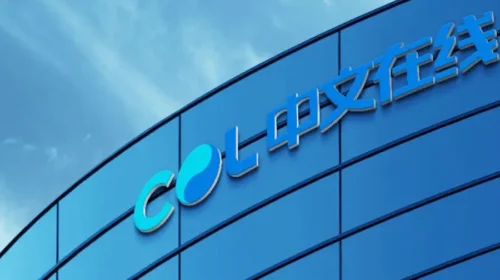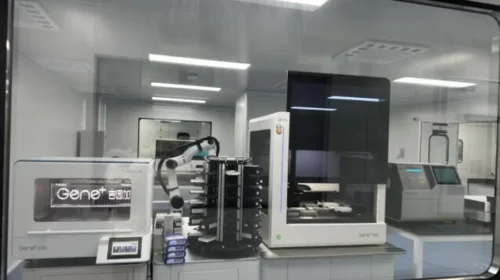Synagistics holds potential to enliven moribund Hong Kong SPAC market

The Southeast Asian e-commerce company backed by Alibaba is inching closer to completing a backdoor listing using a special purpose acquisition company
Key Takeaways:
- Shareholders of a SPAC backed by a former head of Hong Kong’s de facto central bank will vote Oct. 25 on a merger with Singaporean e-commerce firm Synagistics
- The deal would mark the first completion of a merger for Hong Kong’s fledgling SPAC market, which has failed to gain traction since its launch at the start of 2022
By Warren Yang
Hong Kong’s nearly three-year-old special purpose acquisition company (SPAC) program may finally get a much-needed lift by bringing its first actual company to market using an existing listed shell company. Somewhat ironically, the company that could make its debut through the SPAC route is from Singapore, rather than from China, which is the Hong Kong Stock Exchange’s main supplier of new listings.
HK Acquisition Corp. (7841.HK), a Hong Kong-based SPAC backed by a former head of the Hong Kong Monetary Authority, the city’s de facto central bank, announced last Thursday that it will hold a special shareholder meeting on Oct. 25 to vote on a planned merger with Singapore’s Synagistics Pte. Ltd., an e-commerce company focused on Southest Asia.
The transaction, which gives Synagistics a quicker route onto Hong Kong’s stock exchange than a traditional IPO, is progressing toward the finish line a little more than three months after signing its merger agreement with HK Acquisition. As part of this plan, which values Synagistics at HK$3.5 billion ($450 million), the two parties have also secured HK$551 million in commitments from 10 investors, according to a Hong Kong Stock Exchange filing.
Hong Kong’s bourse is desperately waiting for more transactions like this one as its SPAC market has struggled to gain traction since its launch at the start of 2022. SPACs are listed shell entities that have no real business and simply serve as vehicles for real companies to list through reverse mergers. Simply put, SPAC deals allow privately held company to go public by taking over the shell’s listing status.
Listing through SPACs has become hugely popular in the U.S. in recent years, particularly among cash-hungry technology startups, by allowing them to circumvent a traditional IPO process that is often lengthy and cumbersome. Hong Kong and longstanding regional rival Singapore have sought to join the party, each rolling out its own SPAC framework at similar times.
However, neither city has come anywhere near replicating the U.S. boom. Coming up on three years into their SPAC games, each city’s stock exchange has failed to host more than a handful of SPAC listings. Worse yet, Hong Kong has yet to complete a SPAC merger, or a so-called de-SPAC transaction, while Singapore has completed just one.
Many factors may underpin the moribund state of SPAC markets in Hong Kong and Singapore. Chief among them may be general conservatism among Asian investors. Betting on companies seeking to go public through SPAC deals is a risky affair, since such listings can evade the level of scrutiny required for traditional IPOs.
A drop of more than 70% in the share price of 17Live Group Ltd., the only company that has gone public through a SPAC merger in Singapore, doesn’t quite help convince investors to take their chances with this type of offering. SPAC listings by Chinese companies in the U.S. over the last two years have also performed poorly, including ones by luxury goods maker Lanvin (LANV.US) and restaurant operator TH International (THCH.US).
Making matters worse, broader investor sentiment in Hong Kong has been relatively downbeat since the city’s program launched amid an economic slowdown in China. That weakness has also depressed the traditional IPO market and made SPAC listings an even tougher sell.
Alibaba ties
Given its background, it’s interesting that Synagistics chose Hong Kong over its hometown of Singapore as its listing venue. But that decision starts making sense once you realize that a formidable company that’s quite familiar with Hong Kong is behind Synagistics. That company is Alibaba (BABA.US; 9988.HK), which currently owns about 47% of Synagistics through a Singapore unit and will retain a controlling stake, albeit diluted, after the merger.
Synagistics’ Alibaba ties are more than just financial, given the Chinese’s company’s expertise in e-commerce. In addition to its dominant position in China, Alibaba also operates a number of global e-commerce sites, including its popular AliExpress offering Chinese goods to foreign buyers. Alibaba also owns Lazada, which, like Synagistics, is focused on a highly competitive Southeast Asian market whose other big players include Shopee (SE.US) and Tokopedia.
Synagistics is more specialized than Lazada and Shopee, providing an e-commerce platform that beauty, body care and infant product brands can use. It also sells its brand clients’ products directly to consumers through partnerships with online marketing firms and social media sites.
Alibaba may be particularly motivated to support Synagistics to help diversify its own heavy reliance on its home China market. Synagistics’ core Southeast Asian market is booming, with favorable conditions that include rapid economic growth, large young populations, an increasing number of affluent individuals and an acceleration of internet and smartphone penetration. That makes the company appear to have a pretty promising future.
That said, though, Synagistics, which isn’t so young itself with 10 years of operation, still has a fairly small revenue base that isn’t growing at a very impressive rate. Its total revenue increased a mediocre 12% to about S$127 million ($97 million) last year from 2022.
The company’s profitability isn’t going to amaze investors much either, although that could improve as it grows and achieves better economies of scale. Last year, its gross profit margin fell by around 2 percentage points to about 25%, which isn’t that great, especially for a technology company. By comparison, Alibaba’s gross profit margin exceeds 35%. Synagistics’ operating expenses also erase all of its gross profit, so its bottom line is in the red. Worse yet, its net loss widened substantially last year.
So despite its good growth prospects, whether Synagistics can unlock its potential and become profitable remains to be seen. This is likely to be a key consideration for HK Acquisition shareholders when they meet later this month, though such merger deals rarely get rejected by shareholders once they are signed. A likely approval will mark a significant breakthrough for Hong Kong’s SPAC market. Besides HK Acquisition, only two other Hong Kong SPACs have found merger targets, and neither has completed its de-SPAC yet.
At the end of the day, Synagistics’ fate will rest on its ability to carve out a profitable niche in a Southeast Asian market that has lots of potential but is also quite competitive. But at the very least, the company will get a place in the history books if and when it becomes the first in Hong Kong to list through a SPAC merger.
To subscribe to Bamboo Works weekly free newsletter, click here





